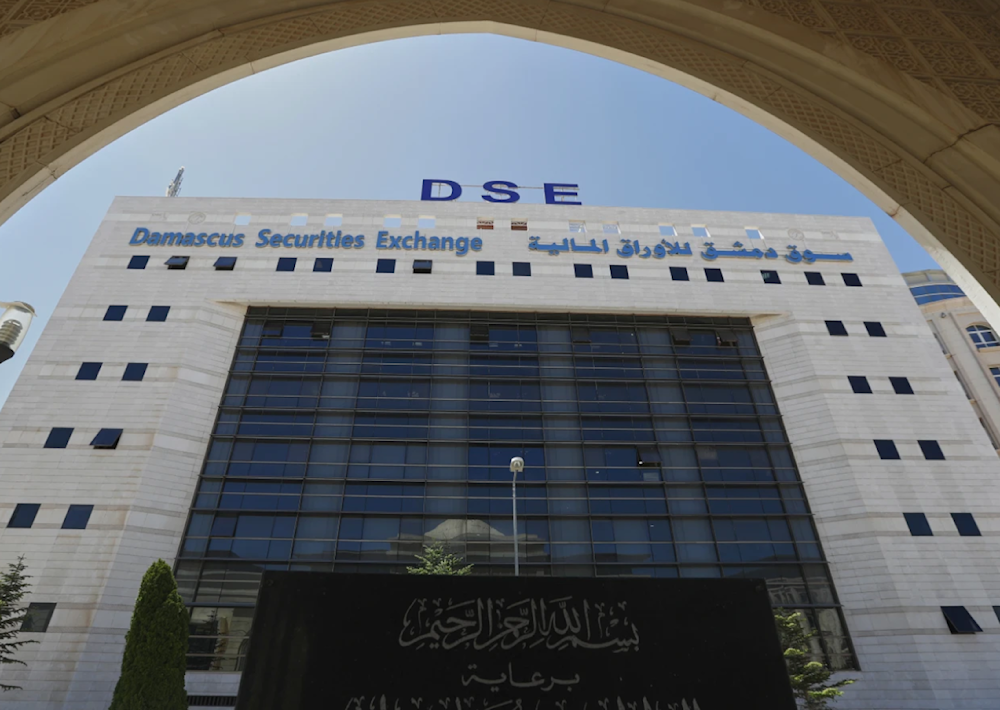World Bank projects modest economic growth for Syria in 2025
The report paints a stark picture of Syria's economic landscape, shaped by 14 years of war and instability.
-

The Damascus Securities Exchange building is seen in Damascus, Syria, on June 2, 2025 (AP)
Following a 1.5% economic contraction in 2024, Syria's GDP is projected to grow by a modest 1% in 2025, according to a new report released today by the World Bank. The report, titled "Syria Macro Fiscal Assessment 2025," outlines both the daunting economic challenges facing the country and the limited prospects for recovery amid persistent security risks, liquidity shortages, and ongoing restrictions on foreign assistance.
While the easing of some sanctions offers a glimmer of hope, the report warns that frozen assets and continued limitations on international banking access remain significant barriers. These issues are affecting the country’s energy supply, humanitarian aid, foreign investment, and overall trade activity.
The report paints a stark picture of Syria's economic landscape, shaped by 14 years of war and instability. Since the outset of the war on the country in 2011, the Syrian economy has shrunk by more than 50%, and Gross National Income (GNI) per capita has plummeted to just $830 in 2024, well below the global threshold for low-income countries. Extreme poverty now affects one in four Syrians, and two-thirds of the population live below the lower middle-income poverty line.
'Land of opportunities'?
Economic data for Syria is extremely scarce and hard to come by. This macro-fiscal assessment bridges critical information gaps and provides an important foundation for policy dialogue to revitalize economic growth and bring prosperity to Syria," according to Jean-Christophe Carret, World Bank Middle East Division Director.
The report acknowledges recent steps by Syria's transitional government to stabilize the economy. These include attempts to unify macroeconomic, fiscal, and monetary policies, as well as improve public financial management and attract foreign investment.
“Syria today is a land of opportunities, with immense potential across every sector,” said Finance Minister Yisr Barnieh. “This report highlights our challenges, particularly those linked to sanctions, but also supports our efforts with the data and analysis needed for sound policymaking. We are confident that growth will accelerate as reforms take hold.”
Precarious road to recovery
However, the road to recovery remains precarious. Security concerns continue to threaten stability, and the government’s ability to secure oil imports remains in doubt, posing inflation risks. Still, the report identifies potential upsides: a governance agreement with northeastern authorities could revive oil and gas production, and deeper regional engagement from countries like Türkiye and Gulf states may stimulate trade and investment.
The return of refugees and internally displaced people could also support a medium-term economic rebound, though this would largely depend on further easing of sanctions and broader international cooperation.
The World Bank concludes that while Syria's economic base has been deeply eroded, coordinated reforms and international support could lay the groundwork for a gradual recovery—if political and security conditions stabilize.

 3 Min Read
3 Min Read










